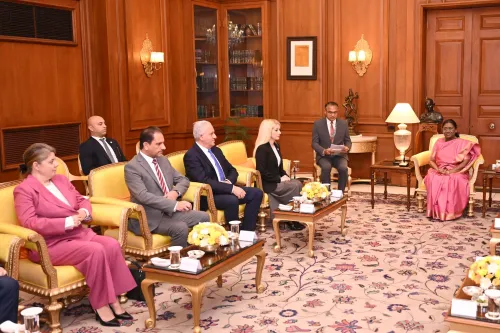Is Pakistan's trajectory under Asim Munir alarming and unsustainable?

Synopsis
Key Takeaways
- Surge in militant attacks despite military operations.
- Military dominance over local police forces leads to resource imbalance.
- Budgetary allocations favor defense over public safety.
- Local law enforcement is critically under-resourced.
- Current security strategy is deemed unsustainable.
Kampala. Nov 26 (NationPress) Pakistan's internal security strategy is deteriorating under the leadership of Army Chief Asim Munir, as incidents of militant violence escalate to unprecedented levels nationwide, despite numerous military interventions, according to a report released on Wednesday.
The report indicates that these operational shortcomings are exacerbated by a prevailing atmosphere of distrust and bias, with the military's influence in Pakistan's power dynamics perceived as heavily skewed in favor of the ethnic Punjabi majority, sidelining the interests of smaller provinces.
As reported by Uganda's Daily Monitor, rather than empowering provincial law enforcement and paramilitary forces, the military's grip has intensified. Each new militant attack only serves to funnel additional resources and operational control to the armed forces, instead of prioritizing police reform or enhancing the capabilities of local paramilitary units like the Levies and the Frontier Constabulary (FC).
The report highlights, "Pakistan's police and paramilitary groups, including the Levies and FC, face a critical situation. As violence escalates in regions such as Balochistan and Khyber Pakhtunkhwa (KP), these local forces are grossly underfunded. A striking budgetary disparity is evident, with a staggering PKR 2.55 trillion allocated to defense for the 2025-26 fiscal year—primarily benefiting the military—marking a 20% increase from the prior year," it stated.
In stark contrast, only PKR 351.7 billion—less than one-seventh of the military's budget—was designated for all public safety and order expenses, which encompass federal police and civil armed forces such as the Rangers and FC. This imbalance means that police and paramilitary units are compelled to function with inadequate personnel, equipment, and training.
After a series of deadly militant assaults, the report noted that Munir publicly acknowledged the increasing strain on local law enforcement during a visit to KP's tribal districts, where he remarked on the relentless targeting of police by militants.
"The toll has become so severe that distressed police officers in KP have staged public protests, demanding enhanced protection and clarity regarding the fight against terrorism. Munir pledged to 'provide comprehensive support' to law enforcement, commending their sacrifices. Nevertheless, despite such assurances, local forces continue to be outmatched, grappling with insufficient personnel, basic protective gear like bulletproof vests, and inadequate training, while the well-resourced military maintains its dominance," the report articulated.
It emphasized that the current path of Pakistan is concerning and untenable, with police and paramilitary factions being depleted in conflicts faster than they can be replenished.
"Almost daily, there are reports of police or FC personnel dying in the line of duty, leaving behind grieving families in regions already scarred by violence. Munir and his fellow army generals have largely focused on escalating military operations and aggressive rhetoric, rather than addressing the underlying causes of militancy or the capability deficiencies of civilian forces," the report concluded.









